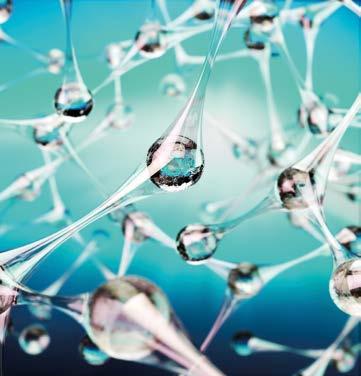
4 minute read
Report | All the objects that soon we
from Kid 01 2020-2021
All the objects that soon we won’t use anymore
With giant strides, technology changes our daily lives and also the objects that we’re used to having in our lives. Some, which now seem indispensable*, are destined to disappear by 2030. Will they end up* in the attic or become museum exhibits*? We’ll see…
The battery recharger Who doesn’t have with them all the time their battery recharger for their smartphone? With Whatsapp chats, videos on YouTube, photos on Instagram and posts on Facebook, our mobiles need to be recharged often. Well, soon we won’t need cables as not only will we be able to recharge our phones without using them but also from a distance! The technology to do that already exists and it’s being


tested at the moment. It works exactly like WiFi and will allow us to recharge wirelessly all our electronic devices from 10 metres away.
Mirrors… In a few decades* mirrors will begin to disappear from our houses as they’ll be substituted by high resolution monitors that will give us new opportunities - make close-ups, obtain information about our health, look at ourselves… dressed in different clothes or with a different hairstyle. Totally virtual but incredibly real! Thinking about it, they are things we already do with our smartphones, when we take selfies and experiment a new look thanks to the filters offered by many apps.
… and car mirrors For some years now more and more cars are installed with video cameras, especially to make manoeuvres like reversing easier. Video cameras provide us with a wider and clearer vision, even 360 degrees, and probably soon car mirrors will be obsolete. In addition, with the increasing 6

circulation of driverless cars, car mirrors will no longer have a reason for existing.
Keys and wallets Let’s say goodbye to house keys, car keys and keys for the office as they’ll be transformed into something else. Keys of the future will be electronic and digital and we’ll be able to open

the door using our phones. Some hotels have already eliminated keys and magnetic cards. The guests can enter in the rooms using a simple app. There will also be more room in our bags and rucksacks when we get rid of* our wallets. “Virtual” payments (by app and smartphone) will eventually take the place of notes, coins and credit cards.

Magazines, newspapers and maps How long are printed magazines and newspapers still going to be found on newsagents’ shelves? Digital papers and magazines are very widespread*, as we know. In addition to the TV, the internet and in general, social networks, provide news and information in real time and usually for free. In the same way, also maps won’t last for much longer. Now, you just have to press a button, and with Google Maps we have the whole world in the palm of our hand.
Glasses In an era of robots that seem more and more “human”, in the next few years it will be normal for us to become a little “bionic”*. Artificial organs and robotic limbs* already exist, but we could also have other technological help to improve our body’s efficiency. Super intelligent electronic contact lenses are coming (which zoom in and out or take photos when you bat your eyes) or eye drops that automatically correct your sight (even making it perfect). Wearing glasses won’t be a necessity any more but just a matter of aesthetics*.
However, there’s still hope for paper, which doesn’t seem to have lost its appeal. With the trend of e-books and audible books, paper books were starting to be forgotten, but recently they are being bought more. The same thing happened with music. With music in streaming and music that we can download in seconds online, there are some people who still prefer “real” music and continue to buy CDs and records, which have also become a cult!




OVER TO YOU
Which of these objects do you think you will miss the most in the future and why?
......................................................................................................................... ......................................................................................................................... ......................................................................................................................... ......................................................................................................................... ......................................................................................................................... .......................................................................................... The answer is on page 15. The washing machine Already in 2012 some Chinese researchers, followed then by Australians, created prototypes of material that cleans itself. It’s covered by nanoparticles (really tiny particles) that react to sunlight, eliminating marks and bacteria and cleaning and disinfecting it. Studies and experiments have shown that this type of material is able to “wash itself” in just 30 minutes in the sun. An invention that will help us use less water and at the same time safeguard our planet from pollution caused by detergents.

Glossary
aesthetics: the study of beauty and taste bionic: having an artificial body part decades: periods of ten years end up: finally be or do something exhibits: puts on show get rid of: eliminate, throw away indispensable: absolutely necessary limbs: arms and legs widespread: extended over a large area






